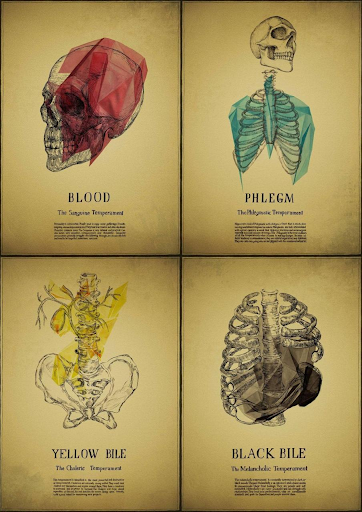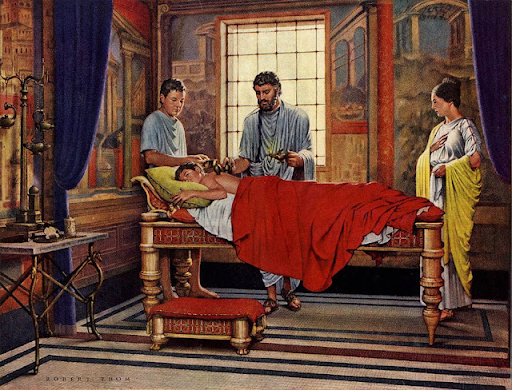“The pandemic is a once-in-a-century crisis that may force health professionals and medical schools to look beyond the traditional tools of modern medicine and think more broadly about how we train doctors to grapple with public health catastrophes. […] The time may be right for the medical humanities to gain a new hearing even though they represent, in some ways, a return to a very old approach to understanding health.”
Worthen, M. (2021, April 10). A Once-in-a-Century Crisis Can Help Educate Doctors. New York Times.
What is “Medical Humanities”?

Medical humanities (MH) can be broadly defined as “an interdisciplinary, and increasingly international endeavor that draws on the creative and intellectual strengths of diverse disciplines, including literature, art, creative writing, drama, film, music, philosophy, ethical decision making, anthropology, and history, in pursuit of medical educational goals” (Kirklin 2003). The humanities and arts provide insight into the human condition, suffering, personhood, our responsibility to each other, and offer a historical perspective on medical practice. Literature and the arts help to develop and nurture skills of observation, analysis, empathy, and self-reflection – (soft) skills that are essential for humane medical care. The social sciences help us understand how bioscience and medicine take place within cultural and social contexts and how culture interacts with the individual experience of illness and the way medicine is practiced.
How does it work?
At the level of the individual patient, medicine and medical systems diagnose and treat disease to prolong life and to limit the suffering during illness. But in many societies, the reach of modern biomedicine far exceeds the intimate zone of patient and caregiver encompassed by this model. From climate change and food activism to city planning and public housing, from family planning and surrogacy to gendered and racial identities, the biomedical model of health now underwrites national and supra-state policies, corporate ventures, targets of social and political activism, and modes of individual engagement.

MH works at the intersection of these different forces and discourses, examining the many factors, from the biological to the social, economic, political, and aesthetic, that influence health and shape our perceptions of physical and psychological wellbeing. Through a unique focus on the cultural and societal dimensions of health and illness, MH helps us develop an ability to think critically about the entanglement between health and culture and promotes an awareness that crosses disciplinary, regional, and linguistic divides.
Health Humanities

The MH first developed an identity in the USA, where the term was coined in 1948 (Sarton&Siegel 1948). Today, the major turn appears to be towards a more inclusive ‘Health Humanities’ (HH) with a recognition that HH can be practiced across a variety of locations, primarily medical school faculties, but also arts and humanities faculties in universities, private and charitable trusts. Professor Paul Crawford (2015) defines this fast-growing field as follows:
“Health Humanities champions the application of the arts and humanities in interdisciplinary research, education and social action to inform and transform health and social care, health or well-being. It aims to be inclusive of viewpoints and contributions from within and beyond medicine; value the experiences and resources of the public; explore diverse approaches to achieving, maintaining, or recovering quality of life; and strives for demonstrable impacts, not least in providing new evidence and insights for the education or practices of those planning, organizing or working for the health of any population.”
In this perspective, the Circular Health initiative promoted at the UF One Health Center of Excellence appears to be the perfect framework for this endeavor: that is, the “Circular Health Humanities”.
By Dr. Sara Agnelli, Adjunct Assistant Professor
References
Bleakley, A. (Ed.). (2019). Routledge handbook of the medical humanities. Taylor & Francis Group.
Bleakley, A. (2015). Medical Humanities and Medical Education: How the Medical Humanities Can Shape Better Doctors. Taylor & Francis Group.
Crawford P., Brown B., Baker C., Tischler V., Abrams B. (2015) Health Humanities. In: Health Humanities. Palgrave Macmillan, London.
Kirklin, D. (2003). The Centre for Medical Humanities, Royal Free and University College Medical School, London, England. Academic Medicine. Oct, Vol 78(10): 1048-1053.
Sarton, G., & Siegel, F. (1948). Seventy-First Critical Bibliography of the History and Philosophy of Science and of the History of Civilization (To October 1947). Isis, 39(1/2), 70-139.
 0
0
